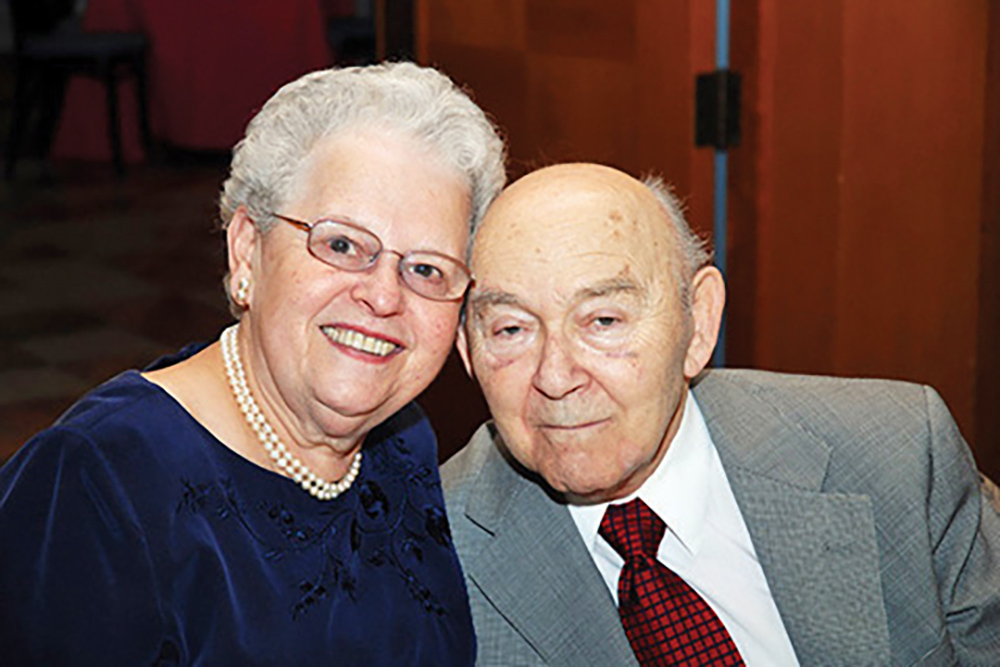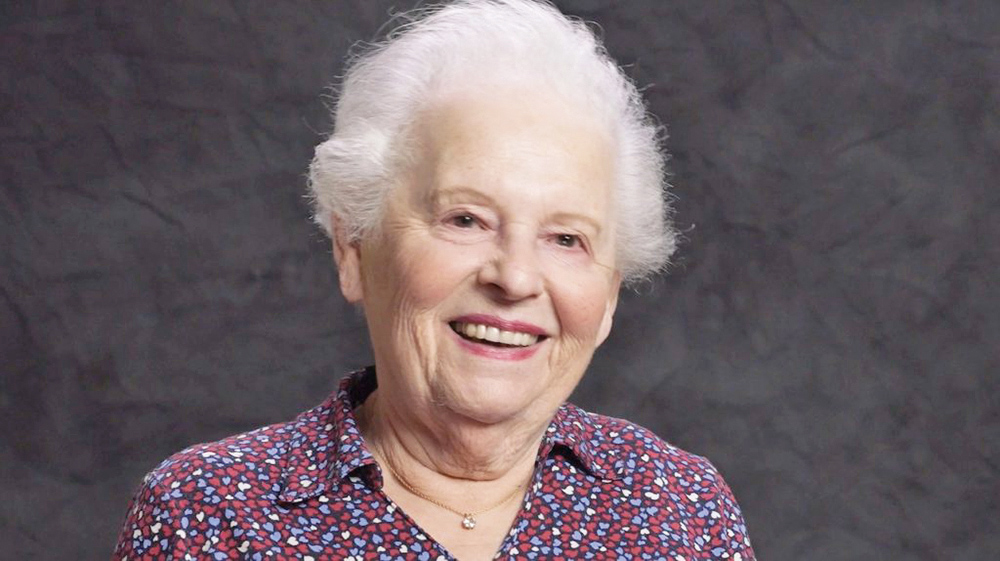
Tisha B’Av was particularly sorrowful for me this year, not only because of concerns about mounting antisemitism and the sociopolitical situation in Israel. I mourned, with Jews throughout the world, the loss of the first and second Temples. But also, I was mourning a personal loss, that of a Shoah survivor I loved and admired: Ruth Ravina.
At Tisha B’Av each year I remember the Shoah, and the many survivors I have been privileged to know. One could call them living miracles, since all were slated to be murdered by one of the most powerful military machines that existed. To Germany’s and their collaborators’ everlasting shame and dishonor, they succeeded in annihilating a third of all the world’s Jews. It’s a loss from which Jews have and never will fully recover, physically, culturally, spiritually, demographically and politically. After almost a century, Jews are still not at their pre-World War II population.
We are certainly nowhere near the numbers we would have reached had 6 million of us been allowed to live and reproduce. Multiplied by all the losses of Jews throughout thousands of years due to unprovoked attacks on peaceful individuals and whole communities, abuses, pogroms, exiles and forced conversions, the numbers are mind-boggling. Combined with softer social and economic pressures to assimilate, intermarry and convert, and the fear of bringing children into a world intent on afflicting them, the figures become overwhelming.
In the face of so much suffering, that we, a people so severely traumatized over thousands of years, still adhere to our faith is a miracle. That the number of faithful Jews is surging is also quite miraculous.
This phenomenon is perhaps almost as miraculous as accounts of survival during the Shoah. These stories include greater or lesser elements of resilience, resourcefulness, courage and heroism. However, the essential element is luck, which many call miracles.
My friend Ruth Ravina was lucky to survive and even luckier to enjoy an amazingly productive and enjoyable life after the war. Most Jewish children were not. The Nazis decreed that each and every Jew had no right to life. They and their collaborators expended great efforts to carry out the slaughter of innocents.

Few stories of survival during the Shoah are as miraculous as Ruth’s. Polish, a toddler when Germany invaded her happy world, Ruthie, as I lovingly called her, passed away on July 12, at age 86. Fortunately, for herself and humanity, she left offspring to carry on our Jewish traditions.
Ruth lived in Montclair, New Jersey most of her life, devoted to her parents and her husband Oscar’s family, as well their children and community. She was a member of Hadassah. Oscar, a musician and professor, played many benefit concerts for their synagogue and other organizations, which she helped arrange. Ruth also had a professional life. The war and its aftermath made her proficient in many languages and she became the manager of the chamber music orchestra Oscar had founded when he was a violinist with the Radio City Music Hall orchestra, before he joined the New York Philharmonic. She arranged their performances throughout Europe, when the Philharmonic was on vacation.
At one point, the chamber group was invited to perform in Japan. The musicians and their families traveled there but were stymied by the language they could neither speak, understand nor read. Mark, the Ravinas’ eldest son, quickly picked up Japanese and became the group’s translator. The language, culture and history became his field of expertise. A professor, he wrote the scholarly book that became a popular film, “The Last Samurai.” He is now a professor at the University of Texas at Austin. According to Ruth, he was lured away from Emory University by an offer so generous, it was impossible to refuse.
Years ago, after one of her last speaking engagements, this one at a high school in Chatham, New Jersey, Ruth and I had lunch together. A justifiably proud mother, grandmother and aunt, she shared that her son Bernard had been invited to address “the Reichstag. Can you imagine? My son at the Reichstag!” A physician and researcher, he would speak about advances in a promising cure for Parkinson’s disease. Aside from that honor, both her amazing children had been invited to speak “at Harvard, and on the same day!” She was very excited and looking forward to attending both lectures, which fortunately, maybe miraculously, didn’t coincide.
It is the story of Ruth Ravina, her own and her family’s extraordinary accomplishments, that puts the Holocaust and all the other historical attacks on Jews into clearer perspective. The potential lost because of baseless hatred is both irrevocable and immeasurable. That said, she wasn’t the only survivor to go on to achieve major accomplishments I have been privileged to meet and get to know. These include some of the most famous survivors, but also lesser-known yet equally amazing individuals.
Certainly not all Jews were, or are, geniuses, brilliant, talented, generous or heroically courageous. Not all were, or are, a source of pride, even to their mothers. But as a people, Jews have made enormously valuable contributions to the world, vastly disproportionate to their numbers. See the list of Nobel Prize winners. Just look at what Israel, a land with little to nothing in the way of natural resources, except for its Jews, has accomplished in so short a time, and against all odds and their bellicose neighbors.

Jews don’t just believe in heaven, they believe in a better world on earth. The first command to Adam and Eve was not merely to be fruitful and multiply. It was to subdue the earth, replenish and subdue it. In other words, labor at making and keeping it habitable and pleasant for all. This is not a simple task to accomplish, but one we’re obliged to continue. That’s what Ruth Ravina resolutely worked to do, even when it was a struggle, as it became towards the end of her life. May her memory be a blessing and inspiration to all. After all, Jews have always lived in hope, even on, or especially on, Tisha B’Av.
Barbara Wind is a writer, speaker and Holocaust-related independent scholar, curator and consultant.









